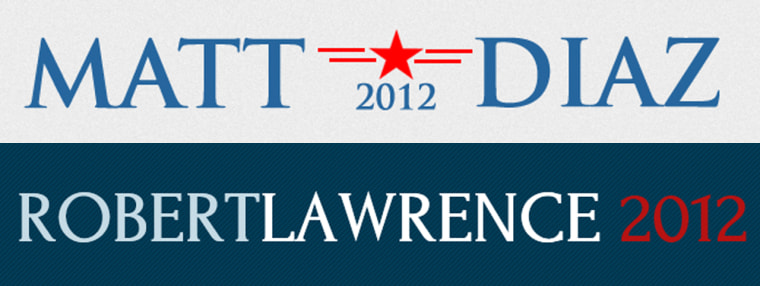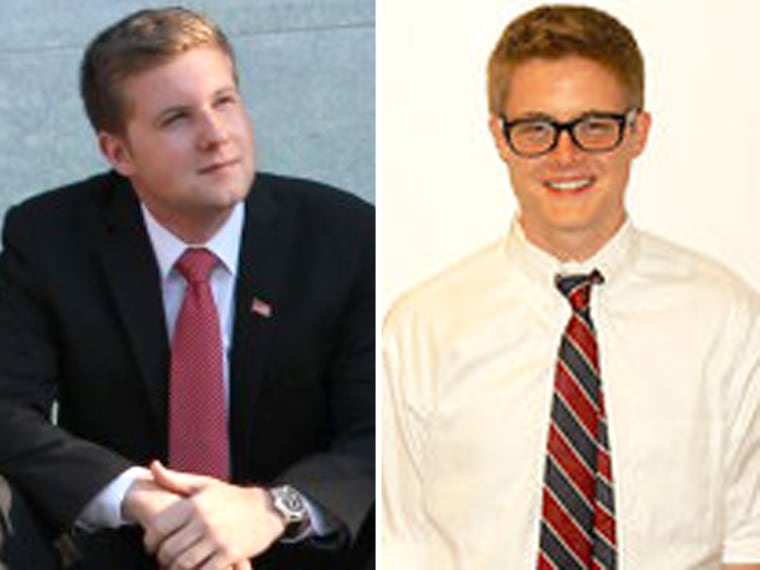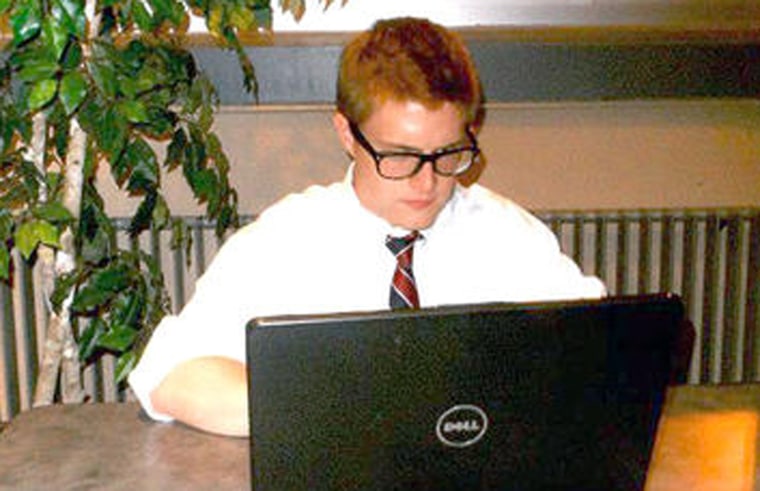
During the 1980 presidential campaign, a reporter asked Ronald Reagan how an actor could run for president. Never short on humor, Reagan replied, “How can a president not be an actor?"
For the last 10 weeks, we’ve been acting like presidential candidates for college credit. Our course is called #ElectionClass: Social Media and the 2012 Election, taught by Professor Anthony Rotolo at Syracuse University. The course aims to examine the presidential campaign through the lens of social media and analyze the electoral process in real time.
Read story: Students study social side of election
The class was split into campaign teams, each representing a different type of candidate. "Matt Diaz," a Democratic U.S. senator from New York went up against "Robert Lawrence," a Republican businessman with no prior political experience for president of the fictional “Amercia,” a nod to the Romney campaign’s misspelling that went viral this summer. We were surprised how quickly we morphed into our assigned candidates.

Months of watching the real campaigns — we’re both political junkies — had prepared us with all the talking points, key phrases and zingers we would need. We closely studied each candidate’s stump speech to make sure every one of our quips on “millionaires and billionaires”or “trillion-dollar deficits” was just like the real thing.
We also looked at their social media presence for inspiration, molding our strategies around real-world digital campaigns. Our fellow classmates supported the candidate who utilized social media most effectively and performed the best in debates, not necessarily the one who shared their political ideology. "Diaz" and "Lawrence" won their parties' nominations and moved on into the general election.
#ElectionClass has taught us a lot about social media’s role in political campaigns, but has also forced us to reflect on how we view the two candidates. Although we’re campaigning on a much smaller scale, we can relate to Barack Obama and Mitt Romney as individuals — imperfect candidates trying to run perfect campaigns.
There was persistent anxiety over how voters would react to negative campaign commercials and personal attacks. We had to differentiate ourselves from the group, so we made over-the-top critiques of other candidates, many who are our friends in real life. We agonized over the latest poll numbers, which seemed to name a different front-runner every week.

We each applied our backgrounds and experiences to shape our fictional candidates. We both have a strong social media pedigree as members of Syracuse University’s student social media team, managing the university’s flagship accounts including Facebook, Twitter and Instagram.
Bob is a junior information management and technology major from Cleveland. 2000’s razor-thin election kick-started his interest in politics at age nine. In his native Ohio, he witnessed the importance of innovative campaigning in a swing state. In high school he won multiple speech and debate competitions, so playing Robert Lawrence at the #ElectionClass debate podium came naturally.
Jared, a dual major in political science and broadcast journalism, covered the Republican campaigns in New Hampshire leading up to its presidential primary. He saw the candidates up close and talked with campaign staffers in the home of “retail politics.” Jared’s performance as Matt Diaz just might be genetic; his father was a local politician in his hometown of Binghamton, N.Y., where campaign talk dominated dinner table discussions.
Our experience taking this course has been truly unique to our academic career. You’d be hard-pressed to find a more topical class on any campus in America this election season.
Most discouraging for us was knowing we couldn’t determine our own fate; it was in the hands of the voters. All our efforts would be forgotten if we lost. It was a big risk, but after many weeks of debates and strategy, we both believe that, win or lose, this experience will be worth the hard work.
More: A house divided: Love, marriage and opposing political views
President Obama gets adorably 'photobombed'
Obama has seen his 'Call Me Maybe' parody
Check out the post-debate love fest
Food on the trail: Why Obama, Romney must visit this diner
Kids vote, predict election winner
Michelle Obama: At the dinner table the president is just 'dad'